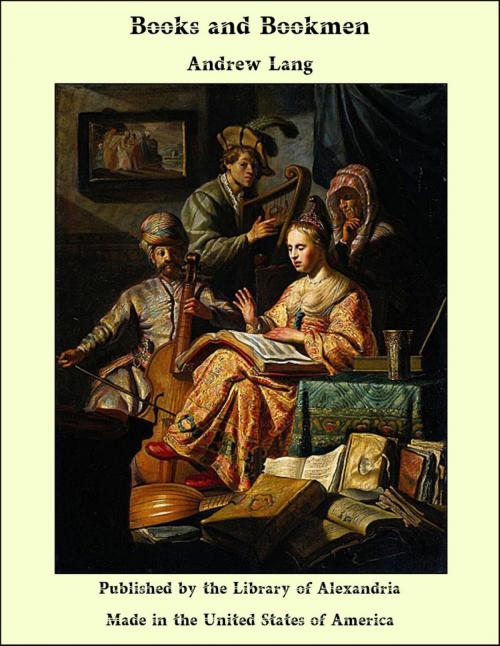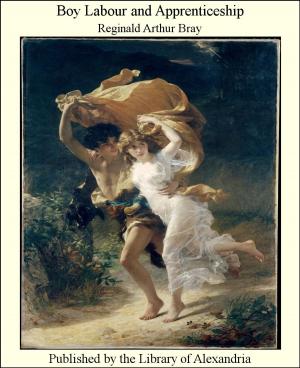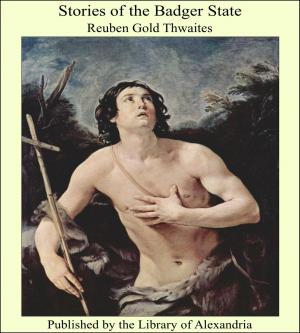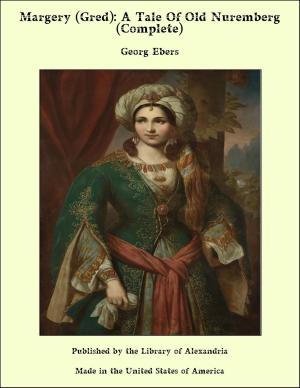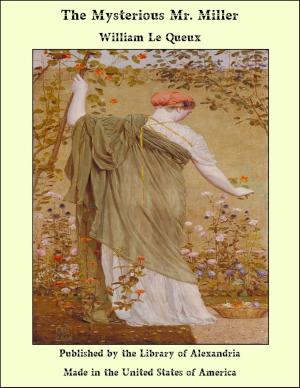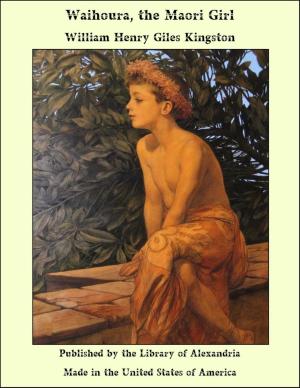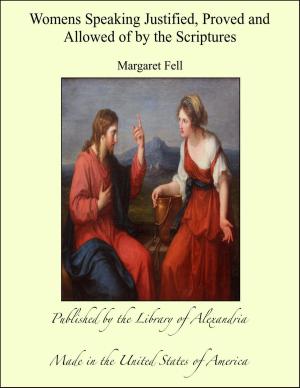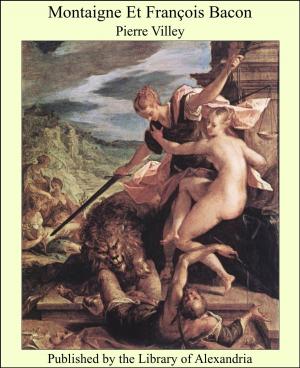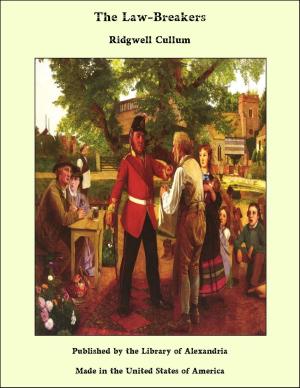| Author: | Andrew Lang | ISBN: | 9781465600769 |
| Publisher: | Library of Alexandria | Publication: | March 8, 2015 |
| Imprint: | Language: | English |
| Author: | Andrew Lang |
| ISBN: | 9781465600769 |
| Publisher: | Library of Alexandria |
| Publication: | March 8, 2015 |
| Imprint: | |
| Language: | English |
The Countryman. "You know how much, for some time past, the editions of the Elzevirs have been in demand. The fancy for them has even penetrated into the country. I am acquainted with a man there who denies himself necessaries, for the sake of collecting into a library (where other books are scarce enough) as many little Elzevirs as he can lay his hands upon. He is dying of hunger, and his consolation is to be able to say, 'I have all the poets whom the Elzevirs printed. I have ten examples of each of them, all with red letters, and all of the right date.' This, no doubt, is a craze, for, good as the books are, if he kept them to read them, one example of each would be enough." The Parisian. "If he had wanted to read them, I would not have advised him to buy Elzevirs. The editions of minor authors which these booksellers published, even editions 'of the right date,' as you say, are not too correct. Nothing is good in the books but the type and the paper. Your friend would have done better to use the editions of Gryphius or Estienne." This fragment of a literary dialogue I translate from 'Entretiens sur les Contes de Fees,' a book which contains more of old talk about books and booksellers than about fairies and folk-lore. The 'Entretiens' were published in 1699, about sixteen years after the Elzevirs ceased to be publishers. The fragment is valuable: first, because it shows us how early the taste for collecting Elzevirs was fully developed, and, secondly, because it contains very sound criticism of the mania. Already, in the seventeenth century, lovers of the tiny Elzevirian books waxed pathetic over dates, already they knew that a 'Caesar' of 1635 was the right 'Caesar,' already they were fond of the red-lettered passages, as in the first edition of the 'Virgil' of 1636. As early as 1699, too, the Parisian critic knew that the editions were not very correct, and that the paper, type, ornaments, and FORMAT were their main attractions. To these we must now add the rarity of really good Elzevirs.
The Countryman. "You know how much, for some time past, the editions of the Elzevirs have been in demand. The fancy for them has even penetrated into the country. I am acquainted with a man there who denies himself necessaries, for the sake of collecting into a library (where other books are scarce enough) as many little Elzevirs as he can lay his hands upon. He is dying of hunger, and his consolation is to be able to say, 'I have all the poets whom the Elzevirs printed. I have ten examples of each of them, all with red letters, and all of the right date.' This, no doubt, is a craze, for, good as the books are, if he kept them to read them, one example of each would be enough." The Parisian. "If he had wanted to read them, I would not have advised him to buy Elzevirs. The editions of minor authors which these booksellers published, even editions 'of the right date,' as you say, are not too correct. Nothing is good in the books but the type and the paper. Your friend would have done better to use the editions of Gryphius or Estienne." This fragment of a literary dialogue I translate from 'Entretiens sur les Contes de Fees,' a book which contains more of old talk about books and booksellers than about fairies and folk-lore. The 'Entretiens' were published in 1699, about sixteen years after the Elzevirs ceased to be publishers. The fragment is valuable: first, because it shows us how early the taste for collecting Elzevirs was fully developed, and, secondly, because it contains very sound criticism of the mania. Already, in the seventeenth century, lovers of the tiny Elzevirian books waxed pathetic over dates, already they knew that a 'Caesar' of 1635 was the right 'Caesar,' already they were fond of the red-lettered passages, as in the first edition of the 'Virgil' of 1636. As early as 1699, too, the Parisian critic knew that the editions were not very correct, and that the paper, type, ornaments, and FORMAT were their main attractions. To these we must now add the rarity of really good Elzevirs.
